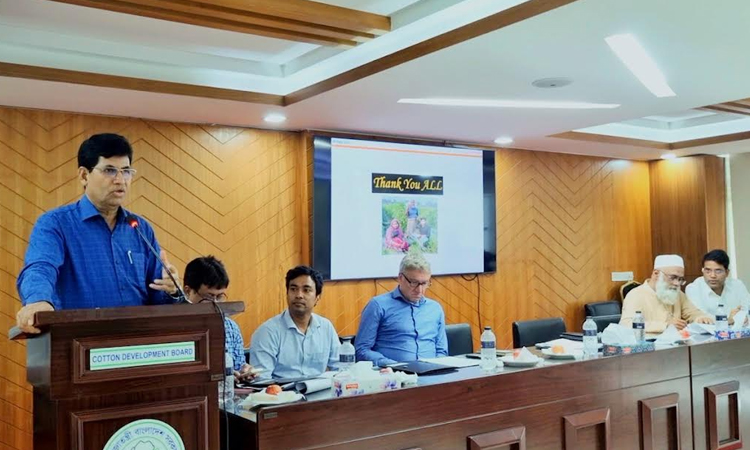News Flash

MYMENSINGH, July 30, 2025 (BSS) - For the first time in Bangladesh, a research team from the Department of Entomology at Bangladesh Agricultural University (BAU), led by Professor Dr. Gopal Das, has identified 25 Highly Hazardous Pesticides (HHPs) currently registered for use in the country.
The study was conducted based on eight internationally recognized criteria set by the Food and Agriculture Organization (FAO) and the World Health Organization (WHO).
The findings were presented by Dr. Das at a national workshop titled "Capacity Development for improved Management of Highly Hazardous Pesticides (HHPs) and Chemicals in Bangladesh," held at the Cotton Development Board conference hall in Dhaka today at 10.30 am.
Analyzing 343 registered active ingredients used in Bangladesh, the research team identified 25 substances that meet the FAO-WHO definition of highly hazardous.
Among these, 11 are insecticides, 7 are fungicides, 5 are herbicides, and 2 are rodenticides. These substances are used in approximately 8,000 commercial agricultural products in the country.
The study found that nine of these HHPs are widely used in field conditions. These include abamectin, chlorpyrifos, paraquat, glyphosate, glufosinate ammonium, carbendazim, propiconazole, zinc phosphide, and bromadiolone. Some other hazardous pesticides were found to be moderately or rarely used.
Notably, pesticides such as cyhalothrin, beta-cyfluthrin, triazophos, edifenphos, and flusilazole were found to have minimal or no field-level application and the researchers recommend their immediate ban.
Discussing the dangers of these pesticides, Dr. Das warned, "These substances are linked to severe health impacts including cancer, kidney failure, heart disease, respiratory complications, and reproductive health disorders. Their toxicity also extends to animals and the broader environment. A significant portion of these chemicals persist in the environment as Persistent Organic Pollutants (POPs), remaining for years."